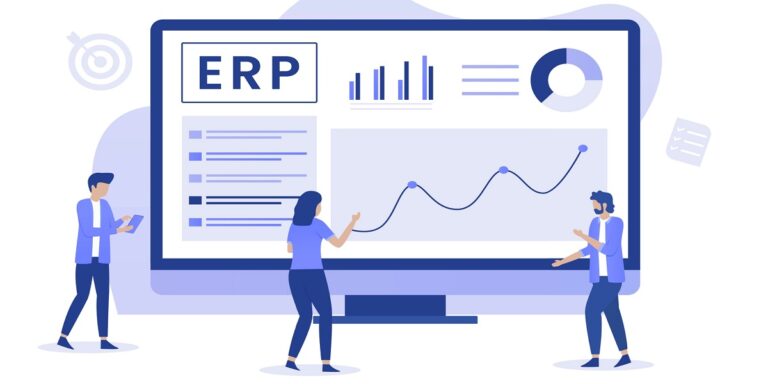The ERP software development cost depends on a variety of factors. It’s important to understand your project’s context and prerequisites before you can make an informed decision about how much it will cost.
ERP software development cost differs greatly from the pricing of other software development projects, like web applications or mobile apps. This article will explain some key factors influencing the overall cost of ERP software development projects so that you can better understand what drives up those costs vs alternatives like making changes yourself or hiring someone else on short notice.
Factors Influencing For ERP Software Development
Project Size
The size of the project, along with its complexity and number of features and functions, affect ERP software development costs. The more complex a system is, the higher its cost will be. The size of your database also influences ERP software development costs. you need to have enough space to store all your company’s information in one place so that users around the world can easily access it.
Developers Cost
The cost of developers depends on the country, city and team size.
Offshore developers are cheaper than in-house teams due to lower wages and less competition among IT firms. To find good developers, you can use online forums like LinkedIn or Stack Overflow. On these platforms, people post their skill sets and availability for work.
Company’s Size
The size of your company and the type of ERP software will also impact the cost. Smaller companies will generally have a lower cost because they can afford to do more with less. Larger companies with more resources can develop better software at higher overall costs.
For example, suppose it’s an enterprise resource planning (ERP) system like SAP Commerce. In that case, you can implement many others in addition to the core functions required for running an organization effectively (such as inventory control).
Workforce Experience and Skill Level
The workforce experience and skill level will significantly impact the ERP software development cost.
The workforce comprises software developers, project managers, and other professionals working in teams to develop custom programs. These individuals may have different skill sets when it comes to solving problems or creating new solutions for clients.
Hence, workforce distribution plays an important role in cost estimation because it affects how much time each individual spends working on their tasks. Also, it reflects the efforts involved in requirement gathering and analysis.
Operating System Platform
The operating system platform is the underlying software on your computer system. It’s what allows you to use specific applications, such as accounting software or project management tools.
OS platform costs vary widely depending on which OS you choose: Linux, Windows, or Mac. Linux is free and open source, while other platforms are proprietary and not open source at all. It means they cost money upfront but don’t require ongoing support or upgrades to run properly over time.
Suppose you’re looking for a relatively inexpensive way to begin an ERP software development project without paying huge upfront fee for licensing fees. Using one of these platforms might be more appealing than purchasing special hardware.
However, if your company plans to stay competitive in today’s marketplace, investing some money upfront into purchasing specialized equipment is smart!
Development Tools, Methodologies and Frameworks
Using tools, methodologies and frameworks can reduce the cost of developing software. They also speed up your development process, improve quality and reduce risk by providing an organized approach to developing software.
Software type and complexity
The complexity of the software is another factor that can influence its development cost. It’s important to remember that there are three types of ERP software: classic, hybrid, and cloud-based.
- Classic: A classical ERP system is often characterized by a large number of users, with multiple functions and features that must be integrated into each other across multiple modules and components. In addition, it requires frequent updates. These updates are usually the result of new policies or procedures structured every few months or years due to process or regulation changes.
- Cloud-based: Cloud-based systems are usually less complex than classic ones because they use an online database accessed through an Internet connection instead of having hard drives installed at each user’s desktop like traditional software packages do.
- Hybrid: A hybrid model uses both physical hardware alongside virtualized versions hosted remotely by third-party providers like Amazon Web Services Inc. This allows companies who want certain features but cannot purchase new hardware yet to want access still.
Conclusion
In the end, it all comes down to your business needs. A good ERP software development cost strategy will help you keep track of all these factors and make the right decisions when it comes time to choose a provider. You can come across brilliant ERP software development companies on forums such as LinkedIn, Discord, Stack Overflow, and more. Companies like InvoZone can provide custom solutions to meet your needs while reducing costs and user resistance.


0 Comments